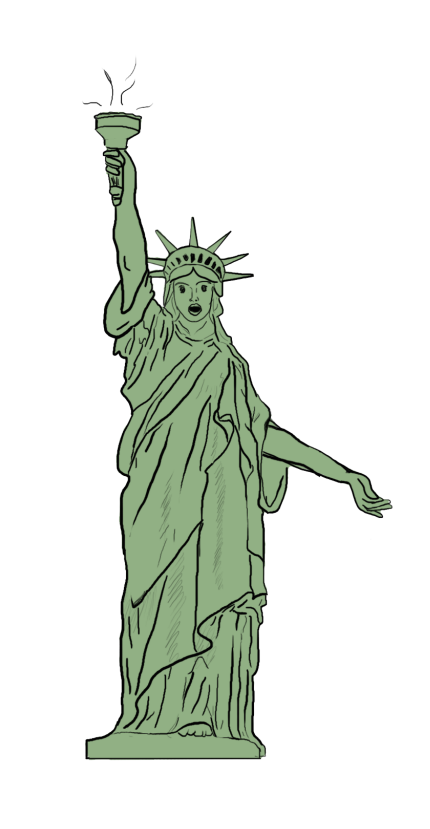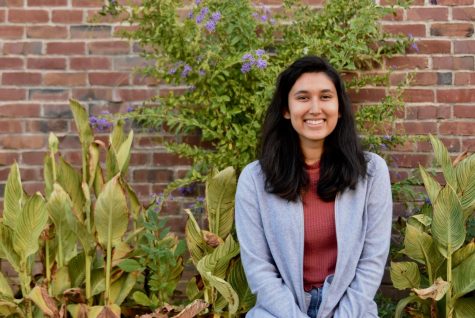White people are dumb — everyone knows that.
Seven words.
Seven words was all it took to land then seventh-grader Sophia Powell in the backseat of her teacher’s classroom. Dejected and alone, she sat in her seat, replaying the boy’s words in her mind — thinking about how he didn’t want to be in a group with her because she was Caucasian and female. Initially Powell was unable to comprehend his intent, but when the realization of the moment gradually sank in, a blank expression swept across her face as she felt her throat tighten. Paralyzed by this tragic feeling of isolation, she closed her eyes until she felt hot tears fall down her cheeks like a river escaping a dam.
“That was the day I realized what my truest fears were,” Powell said. “It wasn’t racism or sexism as others might believe. What I was scared of the most was that all those stereotypes people have about Caucasians are actually true, that they actually apply to my life.”
Defined by Merriam-Webster Dictionary as “an oversimplified opinion, prejudiced attitude or uncritical judgment,” stereotypes play a vital role in human development. So vital, in fact, that they can be utilized to portray an individual as the enemy and mask feelings of fear. And for junior Hira Ali, a Muslim-American of Pakistani descent, that’s exactly what stereotypes did — they stimulated fear.

Born in the United States, Ali is among the millions of Muslims whose emergence from childhood into young adulthood has coincided with a violent surge of Islamophobia. As a result, she has had to contend with anti-Muslim sentiment, putting her best face forward to gain approval from others and avoid harassment.
“Last summer, I was volunteering at a retirement center, and one of the elderly gentleman began pressuring me to take off my scarf,” Ali said. “He said that I was oppressing myself, that I was in America so I should act that way. He made false accusations, claiming that women in the Middle East get beaten by sticks and stones. But more than that, he struck this chord in me, and I realized that no amount of experience can change a person’s core belief unless they want to change it themselves.”
After arriving at that conclusion, Ali decided to join forces with other Muslim students at MVHS to lead the Muslim Student Association, a club dedicated to raising awareness of the Islamic faith and the message it relays.
“I wanted people to just look at the ordinary Muslim, and [I wanted] to implore them to not judge Islam by its followers [like ISIS], but by its content,” Ali said. “Because if you actually understand the religion, you’ll learn that the Quran is truly promoting the beliefs America has as well, like peace, equality and democracy.”
Despite her effort, Ali admits that it will take more than just a couple of students to combat xenophobia, as it is deeply ingrained in Western society. Powell agrees, citing that negative beliefs and prejudices have become so influential in the American lifestyle that individuals no longer have the freedom to fully express themselves.
“I feel like I have to change and not be as much of myself in order to fit in,” Powell said. “Around others, I act more mature for my age just to get that same amount of respect others do in school. I act smarter so that people will think of me as an equal, and I act all put together when I don’t feel that way at all.”
Ali faces a similar dilemma, in which she deliberates whether to follow so-called American practices or uphold her beliefs as a devout Muslim. While she herself has remained true to her cultural origins thus far, Ali recognizes that she is among the few, for many, if not most Muslims, constantly forsake their personal identities in order to fit in.
“What pains me more than anything is seeing other Muslims or general people change the way they are just to please others,” Ali said. “This is painful to me because, first of all, there’s no real definition of American individualism. And second, there’s a huge difference between changing yourself because you want to, and changing yourself because others want you to.”
Spanish teacher Molly Guadiamos couldn’t agree more.
“I don’t care where you’re from, or who you are,” Guadiamos said. “As a Jewish person, I know what it feels like to be historically victimized, so if you need me or are just looking to talk to someone, know that I’m here and that I will do anything I can to help you.”
Even with help available, it is an undeniable fact that, to be considered an “alien” in one’s own country can come with a sense of otherness and can be, at times, a grueling experience. Powell understands this and remarks that no matter where an individual comes from, in her eyes, they are all American and subject to the same laws as any other race.
In return, she expects others to realize that her pale, white skin does not in any way measure her intelligence, determine her personality or decide her aspirations. If anything, it’s simply a reflection of her ancestry.
“A lot of people say I have it easy because I’m white,” Powell said. “They expect me to be living a perfect life, the life of a privileged person. What they don’t understand is that I’m not dumb because I’m white, or beautiful because I’m white or rich because I’m white. I am who I am, and being Caucasian is just a tiny part of a bigger whole.”









